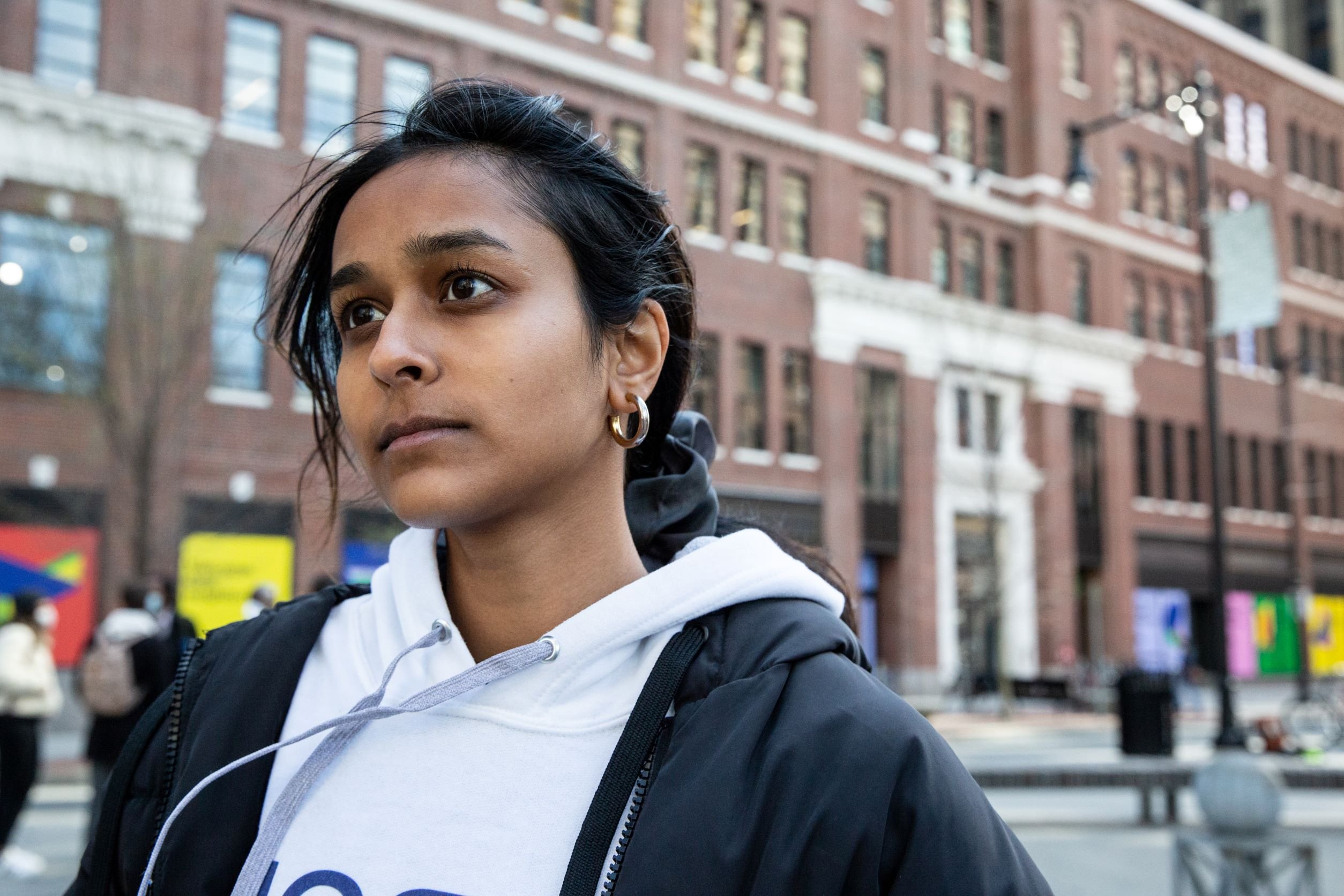Shareholder resolutions and popular mobilizations feature calls for expanded production.
Calling vaccine inequity a “failure of humanity” in a recorded statement to Moderna shareholders, World Health Organization (WHO) Director-General Dr. Tedros Adhanom Ghebreyesus urged the pharmaceutical company to share information about its COVID-19 vaccine to allow manufacturers working with WHO to produce and deliver COVID-19 vaccines to more people in lower-income countries.
“If Moderna worked with us, we could submit the WHO’s COVID-19 Vaccine mRNA Technology Transfer hub’s vaccine for approval at least one year sooner,” he said, adding that such collaboration would “save lives, decrease the risk of variants, and reduce the pandemic’s economic toll.” The Director General’s unprecedented presentation at the company’s annual shareholder meeting in support of Oxfam‘s resolution proposed Moderna study the feasibility of transferring vaccine technology and know-how to manufacturers in low- and middle-income countries to improve access.
Oxfam submitted a similar resolution to Pfizer shareholders; it was presented by Ady Barkan, the founder and co-director of Be A Hero. “The vaccine was made possible by public taxpayer funding and contributions from the global, scientific community,” Barkan said to shareholders at Pfizer’s annual meeting. “But instead of continuing to work together to end the pandemic, Pfizer has chosen to turn its back on the world."
A third Oxfam resolution to Johnson & Johnson sought clarification on how the public support that the company received factors into its vaccine prices. Maaza Seyoum, the Global South convener for the People’s Vaccine Alliance, presented the resolution saying that the company had not done enough to ensure equitable access to its vaccine despite receiving an estimated $1.5 billion in public funds. “This injustice has heartbreaking consequences,” she said. “Millions of grandparents and healthcare workers across Africa are not protected from this virus. In India alone, over two million children have lost a parent to the pandemic. These lives matter.”

Two influential institutional shareholder advisers recommended support for Oxfam’s resolutions, with one acknowledging global demand for vaccine equity amid criticism of the companies’ alleged prioritization of profits, as well as support for a temporary waiver of intellectual property rules at the World Trade Organization.
The shareholder resolutions at Moderna and Pfizer received nearly 30 percent support among independent shareholders. “We believe this strong vote share demonstrates that a significant number of Moderna and Pfizer’s shareholders recognize that the only sustainable way to end the pandemic is to leverage the world’s full manufacturing capacity as quickly as possible,” said Oxfam’s Robert Silverman in a statement. Johnson & Johnson released its resolution vote result over the following weekend, and reported 34 percent of shareholders supported Oxfam’s resolution.
Activists speak out
All three pharmaceutical companies conducted shareholder meetings on April 28th, and on the same day, civil society organizations and members of the People’s Vaccine Alliance held rallies and demonstrations to call attention to the need for expanded vaccine production. From Ireland to India, from South Africa to the England, activists took to the streets to call on these companies to share the technology.
In Cambridge, Mass., activists marched down Main Street to Moderna’s headquarters chanting, “Moderna! What the heck? Do your part and share the tech!”

This was the message of the day, according to several of the speakers at the rally, which was organized by Justice is Global and Health Gap, with participation of 10 other groups including Oxfam.
Maanasa Gurram, a 20-year-old pre-med student at University of Maryland and a member of Universities Allied for Essential Medicines, was one of the speakers. As an aspiring physician, she said “I don’t want to be part of this system where only the wealthy countries have access to treatments, and half the world is cut off.”

She noted that many back in her home country of India are still reeling from the severe outbreak of the Delta variant of COVID-19 last year when millions of unvaccinated people became ill and many died. Ria Mazumdar, a Bengali-American journalist, watched the images unfolding in India last year, and challenged her social media followers to help her raise money for oxygen and other medical equipment. “I could not sit back and not take action,” she said, amid a throng of activists in Cambridge, struggling to hold their signs in the gusty afternoon winds. She told the crowd in front of Moderna’s office the loss of lives in India “could have been largely prevented or at least mitigated by proper vaccination programs.”

Oxfam, as one of the founding members of the People’s Vaccine Alliance, has been advocating for a People’s Vaccine: patent-free, mass-produced, and fairly distributed vaccine available free of charge to everyone, rich and poor alike. As part of this effort, Oxfam submitted the shareholder resolutions and urged the three vaccine manufacturers to share their technical know-how with manufacturers in low- and middle-income countries. Because everyone, everywhere should have access to life-saving vaccines.
